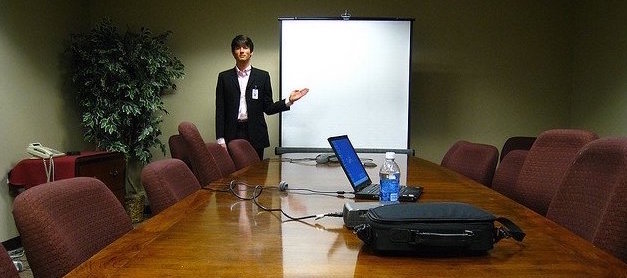Colors: L’hermitage 2

I’m publishing this series on LinkedIn called Colors to explore a topic that I care deeply about: the Renaissance Mind. I am just as passionate about entrepreneurship, technology, and business, as I am about art and culture. In this series, I will typically publish a piece of art – one of my paintings – and I request you to spend a minute or two deeply meditating on it. I urge you to watch your feelings, thoughts, reactions to the piece, and write what comes to you, what thoughts it triggers, in the dialog area. Let us see what stimulation this interaction yields. For today – L’hermitage 2
L’hermitage 2 | Sramana Mitra, 2021 | Watercolor, Pastel, Brush Pen | 8 x 8, On Paper
Featured Videos
Colors: L’hermitage 1

I’m publishing this series on LinkedIn called Colors to explore a topic that I care deeply about: the Renaissance Mind. I am just as passionate about entrepreneurship, technology, and business, as I am about art and culture. In this series, I will typically publish a piece of art – one of my paintings – and I request you to spend a minute or two deeply meditating on it. I urge you to watch your feelings, thoughts, reactions to the piece, and write what comes to you, what thoughts it triggers, in the dialog area. Let us see what stimulation this interaction yields. For today – L’hermitage 1
L’hermitage 1 | Sramana Mitra, 2021 | Watercolor, Pastel, Brush Pen | 8 x 8, On Paper
Cloud Stocks: Okta Not Worried by Macro Headwinds

Corporate identity management software company Okta (NASDAQ: OKTA) recently announced its second quarter results that continued to outpace market expectations. The company improved its outlook for the rest of the year as well, sending the stock soaring more than 10% in the after-hours trading session.
>>>Video FAQs
Can 1M/1M Help Me Raise Money?
How Does 1M/1M Democratize Entrepreneurship Education?
How Does 1M/1M Democratize Management Consulting?
When Is The Right Time To Join 1M/1M?
Can 1M/1M Help Me With Business Development?
Can 1M/1M Help Me With Market Sizing?
Can 1M/1M Help Me Validate My Product?
Will I Have Private 1-on-1 Sessions In 1M/1M?
How Does 1M/1M Help Entrepreneurs Connect With Silicon Valley?
Mentoring or Consulting?
Why Does 1M/1M Charge $1000 a Year?
Why Does 1M/1M Partner With Local Organizations?
Why Don\’t Mentoring Networks Work?
Why Is It Important To Study With 1M/1M Now?
Dan Stewart Story
Vikrant Mathur Story
October 5 – 620th 1Mby1M Mentoring Roundtable for Entrepreneurs

Entrepreneurs are invited to the 621st FREE online 1Mby1M Mentoring Roundtable on Thursday, October 5, 2023, at 8 a.m. PDT/11 a.m. EDT/5 p.m. CEST/8:30 p.m. India IST.
If you are a serious entrepreneur, register to “pitch” and sell your business idea. You’ll receive straightforward feedback, advice on next steps, and answers to any of your questions. Others can register to “attend” to watch, learn, and interact through the online chat.
You can learn more here and REGISTER TO PITCH OR ATTEND HERE. Register and you will receive the recording by email, even if you are unable to attend. Please share with any entrepreneurs in your circle who may be interested. All are welcome!
Best of Bootstrapping: Serial Entrepreneur Bootstrapped Three PropTech Ventures

If you haven’t already, please study our Bootstrapping Course and Investor Introductions page.
LuxuryProperty Founder Jason Hayes has worked at the cusp of real estate and digital marketing for 35 years and built three successful ventures. All of them are bootstrapped, organically grown, capital efficient businesses.
Sramana Mitra: Let’s start at the very beginning of your journey. Where are you from? Where were you born and raised? What kind of background?
Jason Hayes: I’m speaking to you from Dubai. I was born in the UK, brought up in Sri Lanka, and I’ve spent time living and working in the Barbardos and California. I’ve been in Dubai for nearly eight years now. I consider myself a global citizen.
Best of Bootstrapping: Solo Entrepreneur Bootstrapped to Over $5M

If you haven’t already, please study our Bootstrapping Course and Investor Introductions page.
Ukrainian entrepreneur Vladimir Gendelman started as a solo entrepreneur in Detroit and has bootstrapped a $5M+ niche e-commerce company called Company Folders.
Sramana Mitra: Let’s start at the very beginning of your journey. Where are you from? Where were you born and raised? What kind of background?
Vladimir Gendelman: I was born and raised in the former Soviet Union in Ukraine. We came to America when I was 16.
620th 1Mby1M Roundtable for Entrepreneurs Starting NOW: Live Tweeting by @1Mby1M
Today’s 620th FREE online 1Mby1M Roundtable for Entrepreneurs is starting NOW, on Thursday, September 28, at 8 a.m. PDT/11 a.m. EDT/5 p.m. CEST/8:30 p.m. India IST. CLICK HERE to join. PASSWORD: startup All are welcome!
620th Roundtable for Entrepreneurs Starting in 30 Minutes: Live Tweeting by @1Mby1M
Today’s 620th FREE online 1Mby1M Roundtable for Entrepreneurs is starting in 30 minutes, on Thursday, September 28, at 8 a.m. PDT/11 a.m. EDT/5 p.m. CEST/8:30 p.m. India IST. CLICK HERE to join. PASSWORD: startup All are welcome!
